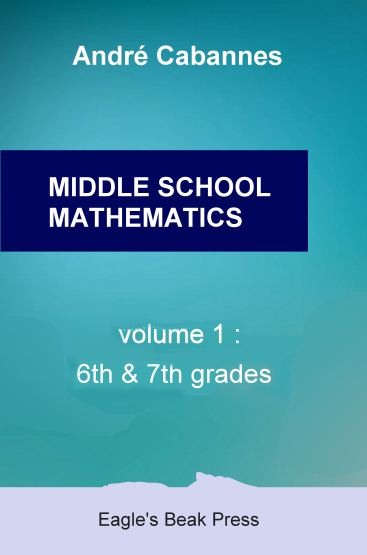| ( red = incorrect --> blue = correct ) |
| Errors to be corrected |
| page 117: I.15.6 Division of N by three --> I.15.5b Division of N by three, because nr I.15.6 is used for the next section |
| page 174: I.24.5 Two examples of interesting geometric properties --> I.24.6 Two examples of interesting geometric properties |
| page 365: Magellan died in a skirmish in the Philippines, but part of his crew returned to Portugal. --> Magellan died in a skirmish in the Philippines, but part of his crew returned to Spain. |
| Errors that have been corrected |
| page 17, first line : brilliant idea of the ndians --> brilliant idea of the Indians |
| page 106: If we had not simplified first, we would have arrived at 58/24 which is obviously the same number as 19/12. --> If we had not simplified first, we would have arrived at 58/24 which is obviously the same number as 29/12. |
| page 113: the number of the lesson on Euclidean division is not I.5 but I.15 |
| page 257, Exercise I.34.2: the division of the pyramid should be in 12 small pyramids, 2 parallepideds, and 8 more forms. | page 287, Exercise II.3.2: There are parentheses that should not be there in the formulas. The correct formulas are here: Exercise_II_3_2.png |
| page 401, Exercise II.25.1: The result is approximately 720 m2 |
| page 401: The area of a circle of length 100 m is approximately 795.77 m². |
| page 404: The numbers of the exercises must be II.26.2 et II.26.3 |
| Notes |
| page 14 : In the text, we attribute the invention of the decimal positional notation for expressing tens, hundreds, and so on to the Indians. Historically, the technique of positional notation actually appears in Babylonian tablets from the early second millennium BCE. However, the fully developed Indo-Arabic system originated in India, roughly between 500 BCE and 500 CE. |
| page 19 : here is an electronic implementation of counting in the binary system : https://www.youtube.com/watch?v=WpQecYzbpnc |
